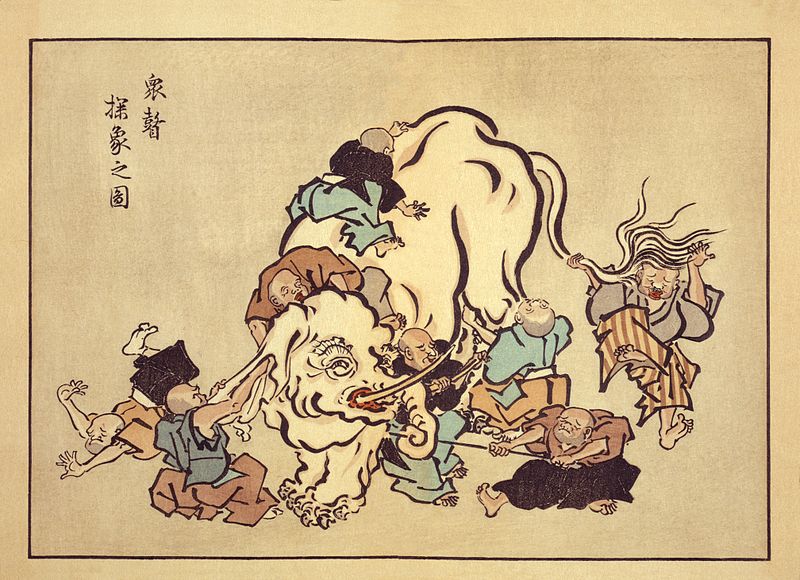
"It is a capital mistake to theorize before you have all the evidence. It biases the judgment." A Sherlock Holmes quote, from A study in Scarlet
The following story is a gem of wisdom, something to keep in mind, especially when working with incomplete data sets, and trying to draw audacious conclusions from them. Don't be as foolish as these poor blind men of Indostan, who although all partly in the right, end up all being in the wrong!

The Blind Men and the Elephant
by John Godfrey Saxe (1816-1887)
It was six men of Indostan
To learning much inclined,
Who went to see the Elephant
(Though all of them were blind),
That each by observation
Might satisfy his mind.
The First approached the Elephant,
And happening to fall
Against his broad and sturdy side,
At once began to bawl:
"God bless me! but the Elephant
Is very like a WALL!"
The Second, feeling of the tusk,
Cried, "Ho, what have we here,
So very round and smooth and sharp?
To me 'tis mighty clear
This wonder of an Elephant
Is very like a SPEAR!"
The Third approached the animal,
And happening to take
The squirming trunk within his hands,
Thus boldly up and spake:
"I see," quoth he, "the Elephant
Is very like a SNAKE!"
The Fourth reached out an eager hand,
And felt about the knee
"What most this wondrous beast is like
Is mighty plain," quoth he:
"'Tis clear enough the Elephant
Is very like a TREE!"
The Fifth, who chanced to touch the ear,
Said: "E'en the blindest man
Can tell what this resembles most;
Deny the fact who can,
This marvel of an Elephant
Is very like a FAN!"
The Sixth no sooner had begun
About the beast to grope,
Than seizing on the swinging tail
That fell within his scope,
"I see," quoth he, "the Elephant
Is very like a ROPE!"
And so these men of Indostan
Disputed loud and long,
Each in his own opinion
Exceeding stiff and strong,
Though each was partly in the right,
And all were in the wrong!